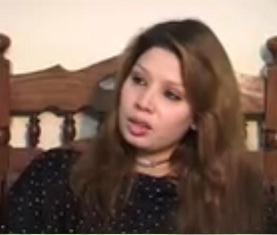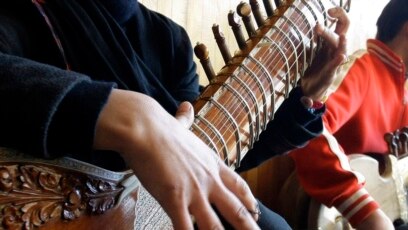Tribal Musicians caught up as militancy increases in Khyber Pakhtunkhwa
By Hanan Habibzai
![]() Music shops in Peshawar are now struggling to stay open as the Taliban’s influence on daily life continues to spread further into government-controlled areas.
Music shops in Peshawar are now struggling to stay open as the Taliban’s influence on daily life continues to spread further into government-controlled areas.
One such shop owner, Shaid Gul who used to own a chain of music shops across the tribal areas, has been forced to close all of his outlets.
 ‘Now, our business has been ruined, Gul says. ‘’Our branches in Tal, Parra Chinar, Hango, Deera Ismail Khan, and Kohat regions have been ruined. We also lost our branch in Sawat region. Our business remains very small about 20 % of our business has survived’’, he said.
‘Now, our business has been ruined, Gul says. ‘’Our branches in Tal, Parra Chinar, Hango, Deera Ismail Khan, and Kohat regions have been ruined. We also lost our branch in Sawat region. Our business remains very small about 20 % of our business has survived’’, he said.
Even here in Peshawar, the capital city of the tribal areas, things are not safe. In May 2009 the cinema next to Shaid Gul’s shop was virtually destroyed by a car bomb that also killed eight people. The militants are targeting films and music and everything they see as obscene. Many people are no longer playing music in their cars for fear of reprisals if they get caught.
Salamat Khan is a taxi driver in Peshawar. He says, ‘’ I love music, but I fear religious groups who are active here, may stop and punish me”, Khan added.
For over 50 years Khyal Mohammed, known as the king of Pashto Ghazal music, has made a living signing for his fellow Pashtuns. He has recorded thousands of songs, appeared in many movies, and used to travel out to villages in the tribal areas to perform live at weddings and other celebrations. Now he hardly ventures out of the compound where he lives for fear for his safety.
‘’Things are much worse now than the time when the Taliban were ruling Afghanistan’’, Khyal Mohammed says. ‘’ Nowadays the atmosphere for music is not good in the. Everyone feels uncertain whether he can return safely home. Some say when you go outside do prayer before it and when get return do prayer for your safe return so this is our situation”, Khyal added.
As with many things in this part if the world it is the women who suffer the most. Twenty-eight-year-old Noor Jehan is one of only a handful of Pashtun female singers. She was brought up in a tribal family near the Afghanistan border. ‘’We follow the ethics of art and traditional sensitivity to an extreme, yet our society is not ready to accept us,’’ Jehan says.
We work very limitedly. The situation is very bad. Sometimes I think we should leave this business but we are obliged to continue to make a living ‘NoorJehan added.
The insecurity is widespread concern for Zeek Afridi, the man who recently brought about western style rock music and fusions.“Local people love to pin their ears back to music, even some Taliban are covertly listening to music but they hate musicians,” he says.
‘’People are using Tali ban names; some of them are systematic criminals who are kidnapping people for money. Several artists were either forced to leave the country or quit their art”, Zeek added.’’
ban names; some of them are systematic criminals who are kidnapping people for money. Several artists were either forced to leave the country or quit their art”, Zeek added.’’
The tribal region is a stronghold of local Taliban. In several areas of Khyber Pakhtunkhwa, the Taliban have either established total control and introduced their kind of own version of Sharia judiciary system or run a similar government providing justice through mobile courts and imposing taxes. A local film director Sajad Toro said ‘’as the situation deteriorates the panic increases’’.
The situation in Khyber Pakhtunkhwa is deteriorating; ongoing chaos in tribal regions and North Waziristan continues to fear government and security officials too. This is a clear indication of the volatility in the region.
Pakistani government deployed tens of thousands of military personnel near the border with Afghanistan in order to control the situation but so far they have been largely unsuccessful control the militancy there.
Afghanistan is virtually accusing the Pakistani Inter-Services Intelligence (ISI) agency of being behind the attacks in Afghanistan. These accusations have overshadowed the relations between the neighboring countries.
However, recently there have appeared some signs of improvement in their relations as a result of peace talks between the two countries.
Islamabad expresses support for president Karzai’s efforts in harmonizing the relations between the two countries. Meanwhile, Western allies in Afghanistan have hinted a backing these peace talks which may turn the Afghan Taliban into a legitimate political movement in the country.

Hanan Habibzai, an investigative journalist with more than ten years of experience in global journalism has covered the US invasion of Afghanistan, the fall of the Taliban regime, and post-Taliban developments, including the rise of militancy in the country.
MA in global journalism from Coventry University, Hanan writes on the conflict in Afghanistan and the regional politics, his work has been published by the BBC Afghan Stream, Pajhwok Afghan News, Reuter’s news agency, the Washington Post, Veterans Today, several local and the global media agencies, Including contribution in a journalism book Afghanistan War and the Media: Deadline and Frontline (2010), edited by R, Keeble & J, Mair, Hanan’s academic work is published around the world.
ATTENTION READERS
We See The World From All Sides and Want YOU To Be Fully InformedIn fact, intentional disinformation is a disgraceful scourge in media today. So to assuage any possible errant incorrect information posted herein, we strongly encourage you to seek corroboration from other non-VT sources before forming an educated opinion.
About VT - Policies & Disclosures - Comment Policy




